What essential workers need right now: Hilary Pennington with Saket Soni

Transcript
[Saket Soni, a South Asian American man with black hair and glasses in a blue shirt, sits for a video conversation with Hilary Pennington, a white woman with short blonde hair, wearing a khaki vest and silver earrings.]
[on-screen text: Saket Soni, Executive Director, Resilience Force]
SAKET SONI: Within a year of a disaster, a clock starts running. And in that year, if you can hold on to your people and keep them there, then you have a city, then you have a town. If many of them start to leave, the entire place collapses. And it really is the case that everybody depends on each other. We have this opportunity to reveal that interdependence, to translate the applause people are getting into the systems that they need.
[on-screen text: Hilary Pennington, Executive Vice President of Programs, Ford Foundation]
HILARY PENNINGTON: And this is, I think, to me, the brilliance of the Resilience Force idea: “Let’s protect them. Let’s make sure that their working conditions are what they need to be.”
[on-screen graphic: Social Justice Leaders on What Matters, Hilary Pennington with Saket Soni]
Hi, Saket. Thank you so much for joining me to talk this afternoon. I really, really appreciate this chance to catch up with you. You are incubating something called Resilience Force, which will be a new organization that is mobilizing to strengthen America’s—what you call, brilliantly, I think—resilience workers, who work on disaster recovery responses. And if there was ever a time where we need to lift up those workers and understand better what they need, it is this time. Hi.
SAKET: I was so thrilled to get your email, Hilary, and just really happy to be here.
HILARY: There is a strand of thinking and argument that says that disasters are actually one of the very few times where communities can actually still come together across difference and work together. So I’m curious how you feel about that, um, hypothesis.
SAKET: Disasters can bring us together. It’s not inevitable. We have to, um, enter the openings that disasters present. Fundamentally, disasters are tragic. That’s all they are. And, um, there’s nothing you can say about them beyond that. They’re not opportunities. But they do present openings. Just like in our lives, when we go through great crises, we reevaluate our priorities. As a society, when we go through extraordinary disasters, we ask ourselves, “What’s really important to us now?”
When COVID happened, it plunged us into our future. And we were really clear that a way of life was ending. New signs of life started blooming, despite the disaster. And one of those was, you know, at shift change—seven o’clock, eight o’clock every night—there was applause raining down for workers. People who were not seen as valuable were suddenly reappraised in the American imagination—because of a disaster, because of the role they played, the essential role they played.
So these are the kinds of ways that disasters do bring us together. Not just doctors and nurses but grocery workers and janitors being celebrated—when they were, you know, close to the bottom of the American labor caste system, you know, and deemed unskilled, and overnight, um, you know, reappraised as essential. Not supported with wages yet the way they should be, but nonetheless achieving this cultural breakthrough. So the speed of possibility really accelerates on all of our issues.
HILARY: Let’s stop on that for a second, right? That very, very powerful image of people coming out to clap for essential workers. You know, yes, that was a broader society seeing those people and honoring and valuing them, on the one hand. And, on the other hand, it has not really turned into a force mobilizing to say, “Let’s pay these people well. Let’s protect them.”
What are you seeing in terms of progress? And what’s working best to try to get from the opening to really the place that we want to get to?
SAKET: Within a year of a disaster, a clock starts running. And in that year, if you can hold on to your people and keep them there, then you have a city, then you have a town. If many of them start to leave, the entire place collapses. There’s no economy to speak of. Schools that are funded by property are no longer running. And it really is the case that everybody depends on each other. So we have really a year after these disasters to reveal this, you know, this interdependence. The same way it was revealed to us, those of us sitting at home, you know, thanking those of us in the hospitals and the grocery stores. We have this opportunity, um, you know, to reveal that interdependence.
And then the other thing we need to do within that year is to translate the applause people are getting into the systems that they need. At the bottom, we need to create these beautiful bonds. On top, we need to create these systems that continue to incent, you know, cooperation.
There’s this story that I always hear, every time I fly into a disaster zone. There’s always a power outage, and darkness all around. And people are afraid of coming out, out of their homes, onto their balconies, out on the streets. The flood waters haven’t yet receded, so there’s still a palpable sense of danger. But how long can you stay inside? Right? And so there’s a moment, and it turns like a wave, and everyone comes out. And because of the power outage, all of a sudden people can see the stars. And people will remark on that in amazement. “It had been so long since I saw the stars. I can’t think of the last time I saw the stars.” And for a moment, you just enjoy the stars. It doesn’t make the disaster any less tragic.
But there’s a certain clarity we get, um, and a sense of wonder. And the job there is to follow the wonder all the way in. That’s the journey we’re on. And organizations like ours, our responsibility right now is to be ready with the big ideas, because people are going in. And if we don’t follow them with these big ideas, then what happens is that inevitably they will retreat. “It was wonderful to clap for essential workers, but I was so silly to have thought that anything would change for them.”
HILARY: You’re trying to break through that opening, which you just beautifully characterized. How are you doing that with this big idea of the resilience workforce?
SAKET: We have to show that, no, you were right to applaud. You did what was right. We’re there with you. We have these big ideas—now we’re giving you something to fight for. We’re giving you something to dream about.
Our big ideas are two simple ones that are huge but perfectly logical. One is legal status for all resilience workers. Essential workers should get citizenship immediately. The second big idea is a little larger, and in a way it’s what the first makes possible. In America, given the disasters that are coming, we need a publicly funded workforce that people can join that builds America, builds society, but also builds cohesion.
In the 15 years since Katrina, there have been over 200 disasters that have caused over a billion dollars of damage each. You step back and you really appreciate that the pandemic is prologue. This COVID-19, as difficult as it’s been, is really a dress rehearsal for a much bigger existential threat to our people and our planet, which is the threat of climate change. And, in the middle of it all, just as there is a set of people essential to COVID recovery, there are these people—a rising force of resilience workers—who are going to be essential to our climate recovery. These are people who are talented. These are people who are necessary to rebuild cities, but they also—I think, Hilary, they hold a key to actually moving beyond the divide that we have in America.
HILARY: We all have to pay attention to this because, as you started, you know, this is going to become a new normal, and we know it’s going to keep happening. So how can we, how can we be prepared to break through with those kinds of big ideas?
SAKET: I appreciate so much your taking the time to, um, to just build connection, and I hope this is the beginning of a lot of conversations.
[on-screen text: What’s your take? Join the conversation]
[on-screen graphic: Ford Foundation logo]
Accessibility Statement
- All videos produced by the Ford Foundation since 2020 include captions and downloadable transcripts. For videos where visuals require additional understanding, we offer audio-described versions.
- We are continuing to make videos produced prior to 2020 accessible.
- Videos from third-party sources (those not produced by the Ford Foundation) may not have captions, accessible transcripts, or audio descriptions.
- To improve accessibility beyond our site, we’ve created a free video accessibility WordPress plug-in.
“It really is the case that everybody depends on each other. We have this opportunity to reveal that interdependence, to translate the applause people are getting into the systems that they need.”
One thing is clear: our world post COVID-19 will never be the same. Saket Soni, a labor organizer, expert on post-disaster economies, and executive director of Resilience Force, discusses with our vice president Hilary Pennington how America can recover and be better prepared for the challenges in our future.
Resilience Force is a nonprofit focused on transforming America’s response to disasters by strengthening and securing essential and disaster response workers—a key endeavor during the pandemic and for future disasters brought on by the climate crisis.
Learn more about Resilience Force at resilienceforce.org
Other videos in this series
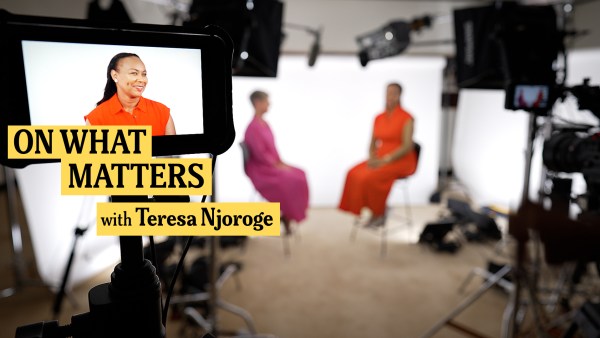
The Power of Restorative Justice With Teresa Njoroge and Hilary Pennington
Teresa Njoroge, founder and CEO of Clean Start Solutions and criminal justice reform advocate, and Hilary Pennington, executive vice president of programs at the Ford Foundation, discuss helping people who have been through Kenya’s justice system find new dignity and hope through employment.
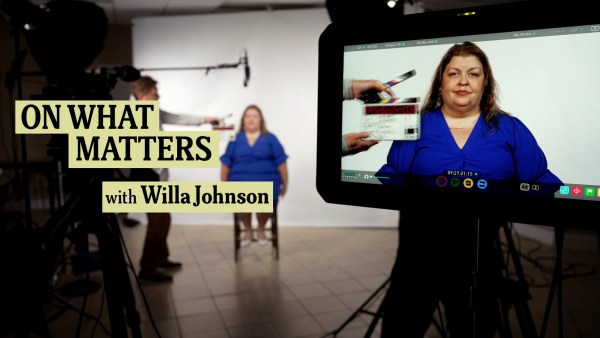
The Power of Appalachian Art With Willa Johnson and Sarita Gupta
Willa Johnson, director of the film department at Appalshop, and Sarita Gupta, vice president of U.S. programs at the Ford Foundation, discuss heartland creativity and amplifying rural narratives.
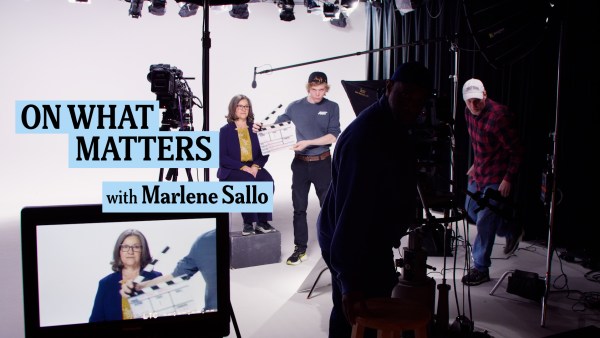
Centering Disability Rights and Justice With Marlene Sallo and Hilary Pennington
Marlene Sallo of the National Disability Rights Network and Hilary Pennington of the Ford Foundation talk about the systems that support and fail the disability community and how disability justice is essential to building a multiracial democracy.
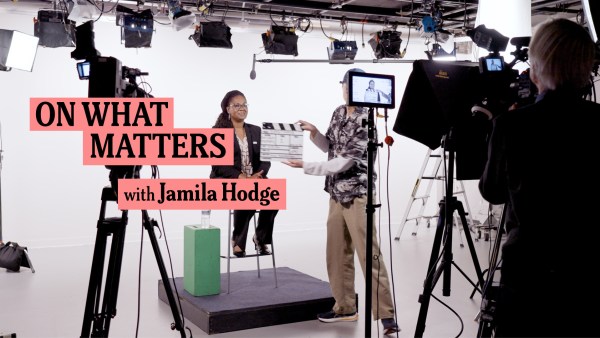
Advancing Community-Based Violence Intervention With Jamila Hodge and Sarita Gupta
Jamila Hodge of Equal Justice USA and Sarita Gupta of the Ford Foundation talk about community-based violence intervention and the importance of promoting a trauma-informed public health response to violence. Jamila explains how, if we want to address institutional racism, we must address the root causes of violence and center those most impacted.
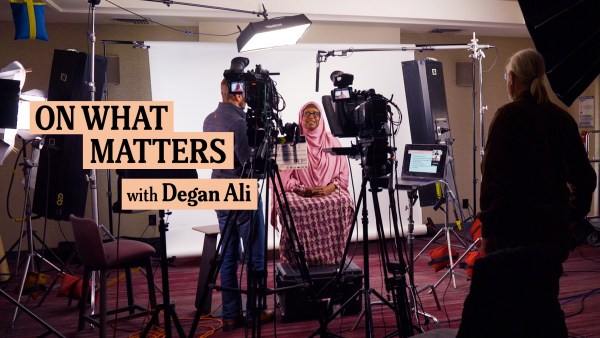
Decolonizing Humanitarian Aid With Degan Ali and Martín Abregú
Degan Ali and Martín Abregú talk about shifting to locally led development and decolonizing aid. Degan shares why we must rethink current structures of providing aid and have local civic society organizations play a stronger and more strategic role in global policy debates.
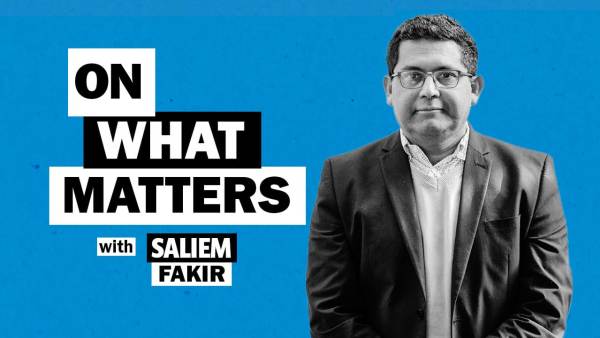
Working Towards a Truly Just Energy Transition with Hilary Pennington and Saliem Fakir
Saliem Fakir, the founder and executive director of the African Climate Foundation, the first grantmaking foundation in Africa focused on furthering solutions for sustainable climate development, joins Hilary Pennington to discuss the urgent need to address climate change and South Africa’s promising Just Energy Transition Partnership.
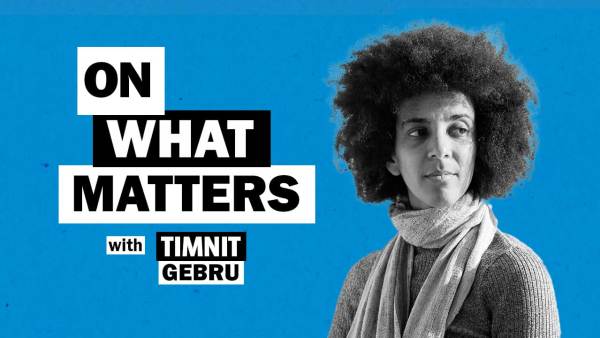
Making AI systems more just with Hilary Pennington and Dr. Timnit Gebru
Dr. Timnit Gebru, founder and executive director of the Distributed Artificial Intelligence Research Institute (DAIR), joins Hilary Pennington to discuss how an inclusive and collaborative approach to creating AI systems can address the uneven benefits and harmful impacts of technology on society.
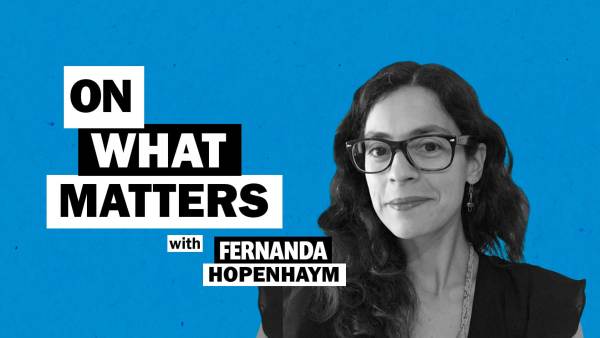
Holding corporations accountable with Hilary Pennington and Fernanda Hopenhaym
Fernanda Hopenhaym is the co-executive director of the Project on Organizing, Development, Education, and Research (PODER), a nonprofit in Latin America that pushes for corporate accountability for human rights and environmental abuses. Fernanda and Hilary discuss how to keep businesses ethical and transparent by using feminist and human rights organizing strategies.
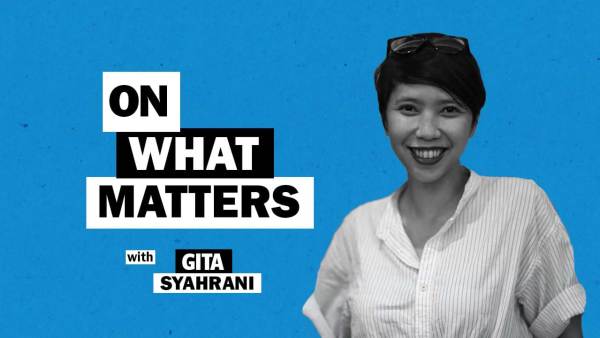
Saving forests while eradicating poverty with Hilary Pennington and Gita Syahrani
Hilary Pennington talks with Gita Syahrani about how engaging Indigenous and local communities in sustainability efforts can lead to greater economic mobility for them. Her work shows how civic engagement at the district level can have global impact.
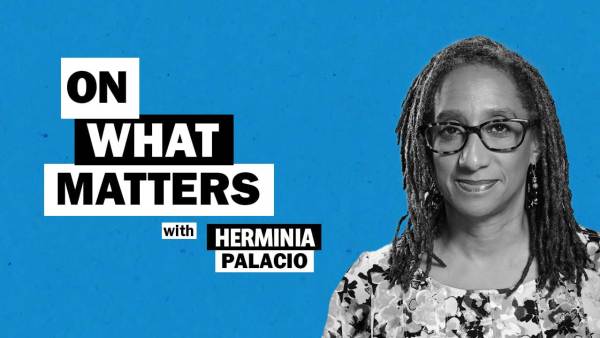
The future of reproductive justice with Hilary Pennington and Dr. Herminia Palacio
Hilary Pennington and Dr. Herminia Palacio discuss this moment in the reproductive justice movement, how different communities are impacted, and what the United States can learn from countries that have won gender and reproductive health victories.
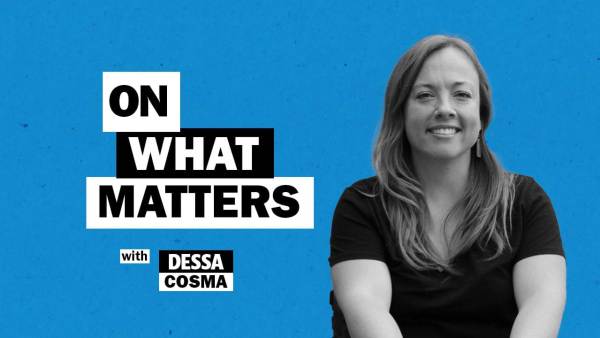
Reimagining how we think about disability with Hilary Pennington and Dessa Cosma
Hilary Pennington talks to Dessa Cosma about disability justice and inclusion. They discuss the importance of using intersectional approaches to activism and how to restructure the economy to be more just for disabled people.
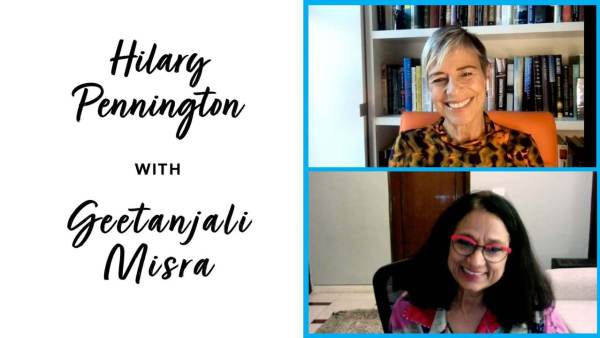
The future of feminism: Hilary Pennington with Geetanjali Misra
Geetanjali Misra has bore witness to the evolution of feminism both on the ground in the U.S. and India and in her work as an activist. Seeing patterns change and movements shift, she speaks about the importance of intersectionality in building a more inclusive feminist future.
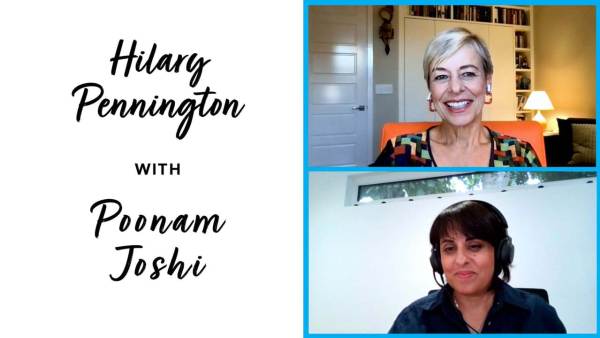
COVID’s impact on civic space: Hilary Pennington with Poonam Joshi
Civic space is essential for democracy. It allows people to participate in society and communicate freely and without discrimination. But, according to Poonam Joshi, director of Funders’ Initiative for Civil Society director, there are threats that need to be addressed before we solidify the civil society we want in the future.
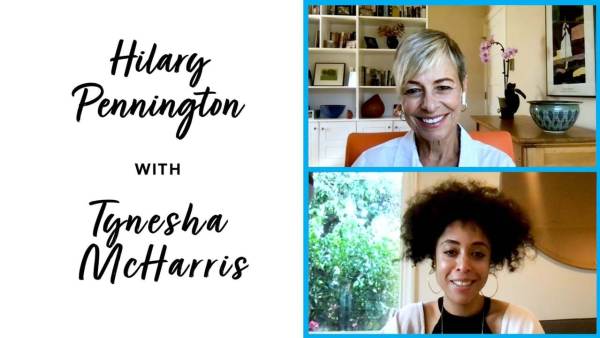
Funding Black feminism: Hilary Pennington with Tynesha McHarris
Black feminist movements are advancing social justice globally. Tynesha Harris, one of the founders of the Black Feminist Fund, aims to channel more support to movement leaders and create a model of true solidarity. Racial, gender, and class injustice need an intersectional approach that acknowledges the inherent value of Black women.

Philanthropy and environmental justice: Hilary Pennington with Laura García
When it comes to climate change, time is running out. But communities all over the world are working on solutions, and philanthropy needs to center their ideas and perspectives to win this fight. Laura Garcia, CEO of GlobalGreen Grants Fund, shares how funding grassroots movements can address challenges at the intersection of social and environmental justice.
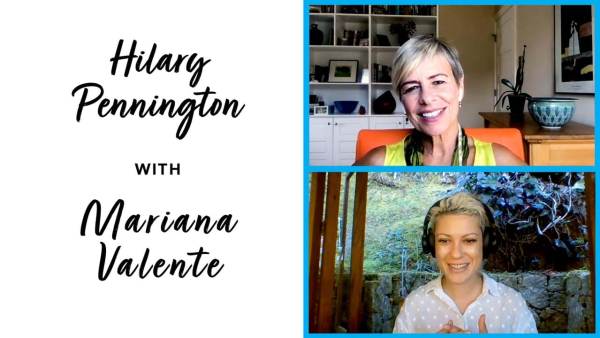
Technology and gender: Hilary Pennington with Mariana Valente
The internet is a force for good, but it must be guided by fundamental human and privacy rights and offer social protection, said InternetLab director Mariana Valente. In this way, technology can advance equality and, with the right policies in place, be used as a tool for advocates to organize.
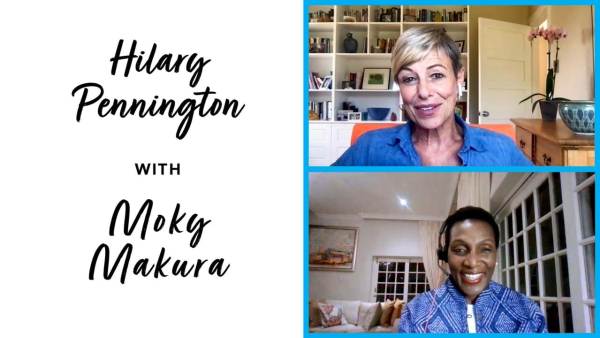
The power of storytelling: Hilary Pennington with Moky Makura
For too long, Africa has been defined in the media by stereotypes and oversimplified narratives. With Ford’s support, Africa No Filter is disrupting these narratives by empowering storytellers helping to create a nuanced, balanced view of the continent and an equitable, inclusive way of how to partner with it.
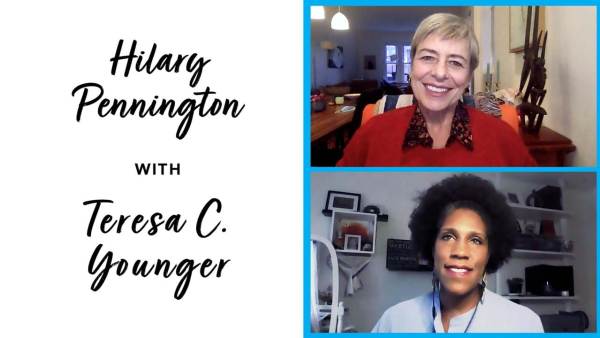
Philanthropy and Black women: Hilary Pennington with Teresa C. Younger
Social justice organizations led by women of color often receive less funding. Teresa C. Younger, CEO of the Ms. Foundation, explains why philanthropy needs to center women of color to address systemic racism and uplift women and girls of color for a more just future.
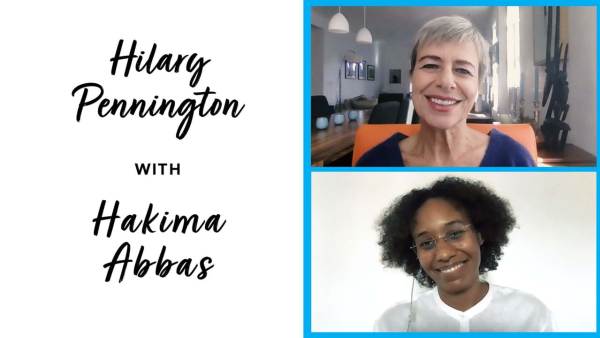
How young feminists are organizing: Hilary Pennington with Hakima Abbas
COVID-19 has impacted the way we work, but it also exacerbated gender inequality in the workplace. Hakima Abbas, of the Association for Women’s Rights in Development, believes we can prevent any further damage by including feminist leaders across the board in devising solutions.
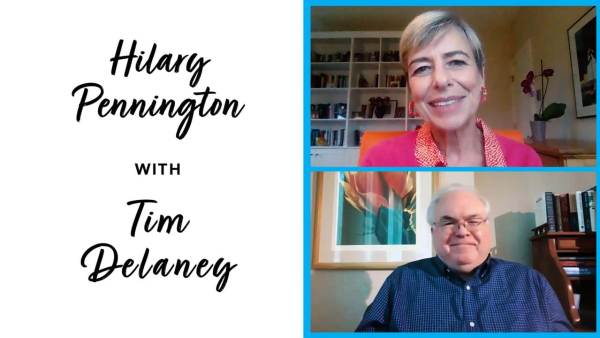
How nonprofits make an impact: Hilary Pennington with Tim Delaney
Over one million nonprofits exist in the United States, but Tim Delaney, the CEO of the National Council of Nonprofits, has an idea to make them even more impactful. To him, bringing social justice groups together can transform philanthropy for the benefit of all.
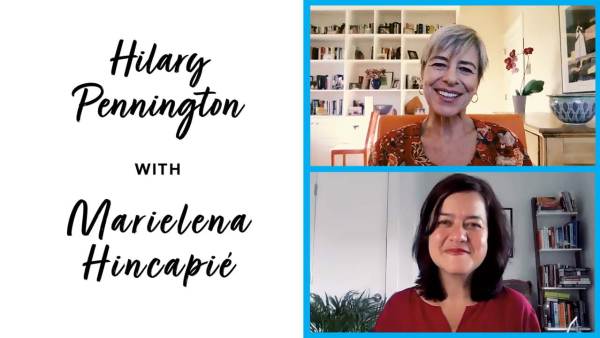
Immigrants are essential: Hilary Pennington with Marielena Hincapié
Immigration has been used as a weapon to divide the United States. The National Immigration Law Center aims to help the country understand that immigrants are not only important members of our communities and essential workers, but they are also valuable political constituencies needed to make American democracy work.
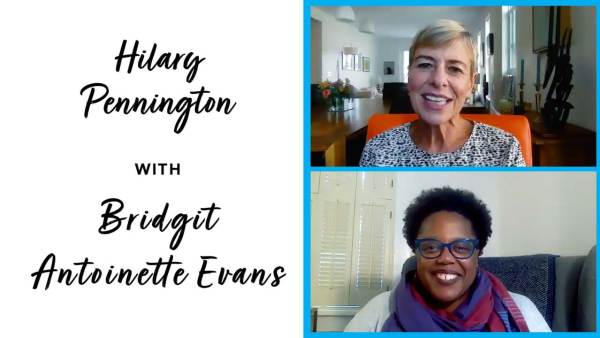
Social justice and pop culture: Hilary Pennington with Bridgit Antoinette Evans
Pop culture plays an important role in advancing social justice. Bridgit Evans of Pop Culture Collaborative produces cultural strategies that build on points of connection to ensure policy changes are not just symbolic. By finding commonalities through culture, she believes we can create a world where everyone feels they belong.
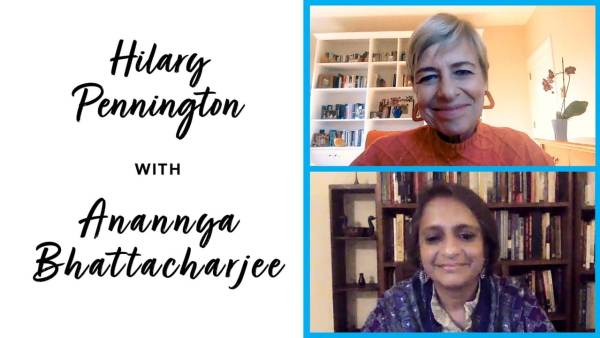
Global work needs to be local: Hilary Pennington with Anannya Bhattacharjee
While the labor movement has worked to improve the lives of garment factory workers globally, activist Anannya Bhattacharjee advocates that solutions need to start locally and come from the ground up to have a significant impact on workers’ lives.
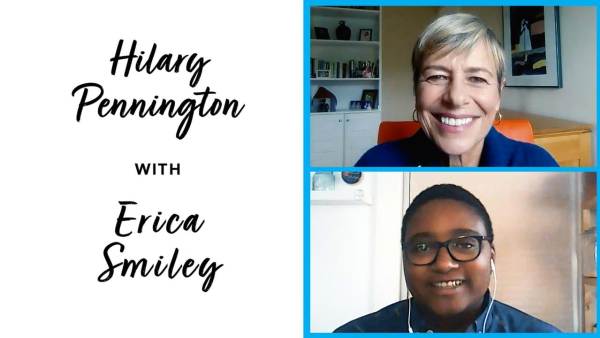
Essential workers are the economy: Hilary Pennington with Erica Smiley
The COVID-19 pandemic has dramatically changed the way we as a world work. As we face this inflection point, Erica Smiley, executive director of Jobs With Justice, believes people—especially essential workers—need to have the right to come together collectively to organize and negotiate their conditions to build a global economy that works for all.

The urgency of this social moment: Hilary Pennington with Eric Ward
We need to dismantle racism to make inclusive democracy truly possible. Eric Ward of Western States Center believes smaller movements can help support bigger waves of change. From creating cohorts of emerging leaders to encouraging small group interactions can help protect democracy and put an end to white supremacy.